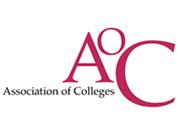AoC sees rise in STEM enrolment

The number of students registering for STEM courses in colleges is rising, according to an annual survey by the Association of Colleges (AoC).
Against a backdrop of public concern over a widening STEM skills gap, the figures show 51% of colleges saw an increase in engineering course enrolments, compared with 12% reporting a decline. For science and maths, these figures were 37% compared with 17%, and 35% compared with 16%, respectively.
In addition, the AoC said there appears to be an increase in STEM course enrolments amongst adults, with 35% of colleges reporting an increase, compared with 3% showing a decline.
Martin Doel, chief executive of the AoC, said: “We are particularly pleased to see an increase in engineering and other STEM subjects. Colleges are clearly responding to economic imperatives, both locally and nationally, and to encouragement from government and their response has been typically rapid.
“Even so, change takes time; we can’t just say ‘let’s have more engineers’ and expect it to happen overnight. As a country we need to generate demand among students for these types of course and this requires corresponding changes in careers advice and guidance in schools from an early age, employer engagement, communications campaigns and national policy.”
However, the annual survey also highlighted a complex picture of college enrolment across a wider scale. Some 37% of colleges saw a decline in student numbers on construction courses, while 35% reported a fall in hair and beauty, and 20% showed a fall in Level 1 enrolments.
Doel added: “Some of our member colleges report a reduction in the number of students enrolling on courses in hair and beauty, the arts and in construction; this may be students responding to messages from government about where their future employment options are likely to be and, in the case of construction, may reflect the current slump in capital and house building.”
According to Doel, the AoC was particularly concerned about the fall in Level 1 students, and the group was waiting to see the final enrolment fgures in the spring to discover whethere this is part of a wider trend.
“Where numbers of Level 1 students are falling in colleges, the decline may have been exacerbated by the issues over GCSE results this summer and may also point to a far more serious trend of young people becoming disengaged with education and disappearing from school and college rolls,” he said.
“These students, in particular those who have not done so well at school, represent the most vulnerable group, those most at risk of becoming NEET (not in education, employment or training). They may also come from the most disadvantaged areas and – with the break-up of the Connexions service and a lack of independent information, advice and guidance on their post-14 options, the increasing pressure on family budgets, and the loss or decrease in student travel subsidies – there may be little colleges can do to encourage them to continue with their education or training. We worry that there may be longer-term socio-economic consequences, both for the individual student’s life chances and for UK plc, if this trend should continue.”
Natalie Thornhill












Responses